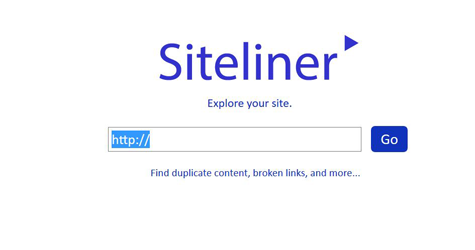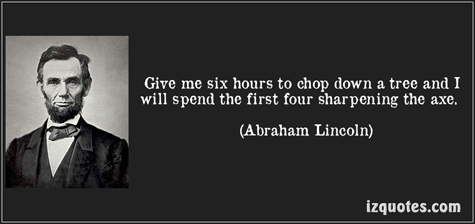23 Mistakes That Kill Search Traffic and Conversions

SEO mistakes are easy to make, but difficult to fix, and can end up being extremely costly for a business. While in the past SEO could be as simple as stuffing a few keywords into a website, search engines have come a long way in returning quality results and weeding out the spam, making a high search engine result page (SERP) listing very beneficial to business owners. Did you know that losing just a few spots in an SERP can make a noticeable difference in your website traffic? On average, 60 percent of organic traffic goes to the top two organic search results.
Aside from ranking highly in the SERPs there are several other ways you can drive traffic to your website. Below we are going to take a look at 23 common mistakes that could be costing you traffic and conversions daily.
1. Failing to update old content
Chances are that you have at least one dated piece of content on your website that is ranking for one or more keywords. The problem is, when people click on it and see it is a few years old, they are more likely to click back to the SERPs and look for fresher content. Take a look at your Google Analytics and see if your site has older posts that are still getting traffic. Take just a few moments to update those posts or add a link to a newer post on those pages and you could recapture a significant amount of traffic.
2. Duplicate Content
Although most of you know that duplicate content can be a killer of your website's performance, many of you still have severe content issues. Some sites have copy/pasted content while others may have duplicate content issues from more technical issues. If you are not sure, you should run a check on your site using one of the many duplicate content checkers such as Siteliner or the SEMrush Site Audit Tool.

3. Page Loading Speed
Remember when you would click on a website and wait patiently as the image loaded line by line? Fortunately, we no longer have to wait that long for a single image to load. As with technology as a whole, people's expectations of websites have come a long way in the past few years. If your website is slow, you are losing traffic and conversions 24/7. Thankfully there are myriad tools that will allow you to identify the issues causing your website to load slowly. A couple of free options to check your website speed are Google Page Speed Insights and GtMetrix.

4. Poorly Written Title Tags and Meta Descriptions
When someone conducts a search, you have only a few short lines to entice them to click through to your website. A properly written page title is helpful to the SEO of your site and should entice the searcher to click on your website. While a Meta description does not have SEO value, it too is very important in achieving clicks to your site. When creating your page titles and Meta descriptions, look ad related PPC ads for inspiration. Remember, if you are ranking first and nobody is clicking on your site, you are not going to see an ROI.
5. Hiring a Bad SEO Company
While innocent mistakes made by amateurs trying to perform SEO can be harmful to a website, the handy work of a misguided SEO company can leave your website down for the count. Even if you plan to hire someone to handle the SEO for your website you need to take some time to understand what you should expect from a reputable SEO company. In addition to understanding the basics, you should look for a company that will work with you to create a custom strategy, has references and is transparent in reporting their work to you.
6. Writing for Search Engines Only
Your website visitors, or in this case your customers, must always come first. Some people kill their organic traffic by writing their content for search engines as opposed to providing value to their website visitors. Well-optimized website content can attract more traffic, but if it doesn't translate into profits and sales, it's useless. When creating content, you need to understand the needs of your audience and provide them with solutions for their problems.
7. Failure to Understand Your Audience
It is important to deeply understand the type of audience you are targeting in your digital marketing strategy. This includes analyzing their online behavior and the type of channels that they are most active in. This enables you to perfectly reach out to the wherever they are, and with clear messages that they will understand. Failure to understand them well and to know their needs has resulted in the failure of many online marketing strategies and companies.
8. No Plan or Goals
Many online businesses aren't setting up measurable goals for what they are trying to achieve through online marketing - whether it's branding, sales or leads. A well-laid plan will help you attain your goals and allow for needed adjustments when you are not meeting those goals. In the eloquent words of Abraham Lincoln:

9. Failure to Implement Targeting
I have seen a lot of companies take the time to collect mountains of data about their target audience and then never get around to using that information. One of the very reasons online marketing is so effective is because of its ability to narrowly target your idea clients. Make sure you are using all of that data you have about your audience to reach them effectively.
10. Omitting a Call to Action
When planning your online strategy you should have identified specific actions that you want visitors to take when they are on your website. Perhaps you want to collect emails, maybe you are trying to boost social shares, or for some, you have a product that can result in an impulse buy. Regardless of what action you want site visitors to take, you need to provide them with a clear path. A call-to-action gives the visitor clear guidance about what to do next. Remember, the fewer options you give them, the more likely they are to pick the one you wanted them to choose!
11. Failure to Use Targeted Landing Pages
When users click on an ad or find you via search, they expect to land on a page that is relevant to the keyword phrase they searched. If the visitor searched for purple shoes, you better take them to a page about purple shoes and not to homepage of your shoe site. As the website owner or marketing strategist, your job is to get the user to the exact information they searched with as few steps as possible.
12. Lack of Testing
A solid digital marketing strategy is never finished. You should always be testing variables in order to identify areas that can be improved upon. You could make changes to the layout of your landing pages and test the conversion rates, adjust your average content length and track ranking variations, or even experiment with different types of content (video, audio, images) to see how your target audience reacts. If you are not testing, you are missing out additional traffic and higher conversion rates.
13. Failure to Seek Reviews
Two of the greatest drivers of sales are trust and scarcity. If you have done a great job for your past clients, you should ask them to leave reviews for you. Seeing reviews from other satisfied clients will help to quickly build trust with potential clients. To maximize the benefits of your reviews you should link to the clients whenever possible so site visitors can see that your reviews are authentic. As an added bonus, reviews are also helpful in local rankings so collect them early and often.
14. F.O.M.O
FOMO or "fear of missing out" is a proven method of increasing buying desire within your audience. Stop and think for a moment how many times you hear things like “limited-time offer” or “while supplies last." While creating a false sense of scarcity can erode trust with your audience, you should be sure to incorporate it into your website when it really exists.

15. Poor Keyword Selection
Just in talking with local businesses one thing has become very apparent to me, people are often sold on ranking for keywords that will not provide an ROI for them. The reason for this is the ease of ranking for those terms. Whenever you are selecting keywords or working with an SEO company to identify good keywords for your business, ask them to provide you with monthly search traffic data. If nobody is searching for the terms they are offering to rank you for, you are not going to see an ROI. If you want to go a step further and verify the data, check out the Ultimate Guide to Keyword Selection.
16. Forgetting about Competitive Analysis
By spending time researching your competitors you can learn a lot about what works and what doesn't. Competitors ranking for your target keywords can provide you with a link building roadmap. Competitors targeting your customers can offer insight into what problems they have, just look at their blog posts. If you study their PPC advertising you can find which terms they advertise for, what ad copy they use to attract clicks, and what key points they are making on their landing page. Learn from your competitors, identify your strengths and their weaknesses, and improve upon what they are doing. If you beat them in the majority of small battles, you are bound to win the war.
17. Failure to Include LSI (related) Keywords
Traditionally each page of a website would be targeted to a single keyword or phrase. Moving forward, marketers began to include a head and long-tail keyword into a single page. In 2015, Google has the ability to understand the overall topic of a page, meaning you can rank a single page for several related keywords. In the past you would include the primary keyword in the URL, page title, first and last paragraph, and is subheadings. Now when you optimize a page you should have keywords in those areas but they should be different keywords focused around a single topic.
18. Failure to Optimize Navigation & Hierarchy
Your website visitors expect to easily navigate your website and how is Google going to know the most important content of your website if you don't have a clear hierarchy? A clear hierarchy needs to be built into your website from the beginning as doing so will help visitors and your rankings.
19. Neglecting Social Media
This is probably one of the most commonly debated topics in the world of SEO. While some SEO experts continue to believe that social media doesn't have great influence on SEO, others say it's indispensable. I say that regardless of whether or not it helps with SEO, it can still drive targeted traffic to your website. Take the information you gathered about your clients and use that to reach them on the social sites that they are active on.
20. Inconsistent Posting Schedules
While I am not saying that you should be cranking out two blog posts per day, creating a regular posting schedule is beneficial to your audience. If they get used to a new post from you weekly and you don't post for several weeks, they are less likely to come back weekly when you do start posting regularly again. Create a posting schedule that you can maintain and stick with it.
21. Still Not Mobile Friendly
Why? Google has made a well-publicized update rewarding mobile friendly sites. In 2015 more searches are being done from mobile devices than desktops. Local mobile searches are the norm and if you are not reaching your audience were they like to search, you are missing out. If your site is not mobile friendly still, take a look at your Google Analytics and see what percentage of your search traffic is coming from mobile devices. In most cases, that should be enough to convince you to make your site mobile friendly!
22. Failing to Add Contact Information to Your Website
Have you ever been to a website and the only contact option was a form on the contact page? Not only is that inconvenient, it certainly doesn't give most site visitors a warm fuzzy. What if I have issues with your product or service - how do I get ahold of your company? For the sake of convenience and credibility, your website should contain a phone number and address, preferably on every page.
23. Giving Up Too Soon
Building a thriving online business takes time and a lot of effort. PPC and social media are quick ways to drive traffic while SEO is a long-term growth strategy. Setting both long- and short-term goals will help you keep your digital marketing on track and enable you to steadily grow your online presence.
What Are Your Thoughts?
What is one mistake you have seen or made that was costing you valuable search traffic and conversions?









